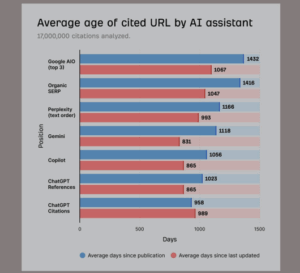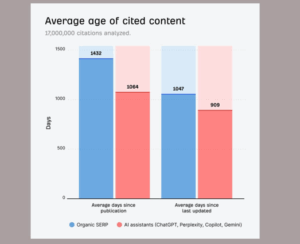
In Conversation with Lakshey Bahl: Generative Engine Optimization, AI Search, and What’s Next for Marketers
Generative Engine Optimization: In the era of AI-powered search and long-tail queries, SEO is shifting from keyword ranking to visibility in generative results. This article explores how brands can adapt their strategies to stay authoritative and discoverable across Google AI Overviews, ChatGPT, Perplexity, and beyond.
Search is no longer just about climbing Google’s blue links—it’s about staying visible in an ecosystem where AI platforms like ChatGPT, Perplexity, and Google’s AI Overviews are answering user queries directly. As user behavior shifts toward longer, more conversational searches, marketers need to rethink how they create content, establish authority, and optimise for visibility in these emerging AI-powered search experiences through generative engine optimisation (GEO).
With over a decade of expertise in On-page and Off-page SEO, content strategy, and analytics, Lakshey Bahl, currently serving as Manager—SEO at Axis Max Life Insurance Limited, has witnessed this transformation firsthand. From traditional keyword optimisation to AI-driven ranking signals, his experience reflects the broader changes sweeping through the search industry.
In this conversation, we dive into what Generative Engine Optimisation (GEO) really means, whether Google rankings still matter in the era of AI, and the practical steps marketers must take to stand out. We also explore how structured data, content freshness, and brand authority are shaping the next wave of search—and why sticking to SEO fundamentals might still be your best strategy.

Lakshey Bahl
Let’s start with: How do you define Generative Engine Optimisation (GEO) in the context of AI-driven search results?
Bahl: Generative SEO is the evolution of search optimisation to improve a brand’s visibility in AI-powered search experiences. Earlier in time, the user behaviour was to search for short, focused queries. But now, with the foundation of AI-powered results, there is a shift in user behaviour as users are now searching for long, long tail queries on Google and other AI platforms. The Google team in the APAC Search Deep Dive 2025 confirmed that there is a 1.5x faster volume growth for queries with 5 or more words. And now users are able to look for more information with a single complex query instead of multiple short queries.
So, now SEOs need to optimise their website not only for Google’s blue links but also for AI Mode and AI overviews on Google and AI platforms like ChatGPT and Perplexity.
Q. With tools like ChatGPT and Perplexity answering queries directly, what does “ranking” even mean anymore?
Bahl: As these tools are answering queries directly, it is crucial for us to optimise our content for all such user queries that exist around our niche. Tools like Perplexity often cite multiple sources per prompt, refer to established, authoritative domains and well-written blog content.
Also, it has recently been proven in multiple case studies that ChatGPT is using the Google index for its answers. You can also refer to a case study by Aleyda Solis, which clearly shows that ChatGPT discovers content when it starts appearing on Google SERP.
So, ranking on Google still holds its importance. You will witness an impact on CTRs on informational searches, but ranking on Google for both informational and transactional queries still hold its importance. While informational queries have seen a CTR drop due to AI overviews and AI mode, the majority of users making purchasing decisions still search for transactional queries on Google and rely on blue links.
So, in short, we need to enhance our visibility on informational queries on Google to be visible across AI tools and be able to better engage with users during their research phase about a product or service, ultimately guiding them toward a purchasing decision. And then be visible at the top on Google searches when the user finally decides to make a purchasing decision.
Q. What are some practical steps marketers can take to optimise for AI-generated search responses?
Bahl: If you want to succeed in AI overviews and AI mode, you need to focus on:
- Creating unique and valuable content for users – creating helpful, reliable, people-first content will help you with the traditional blue links and will land you in Google AI features as well
- A good page experience is a must for any user landing from classic or AI search results.
- Ensure Google can access your content and you meet all the technical requirements.
- Focus on Experience, Expertise, Authority, and Trustworthiness (EEAT): Ensure your site and authors are recognised experts on key topics. Google and AI models tend to amplify reputable voices.
- Manage visibility with preview controls – More restrictive permissions will limit how your content is featured in our AI experiences
- Ensure Structured Data matches the visible page content—implement structured data with the same content as visible on your page. Structured data helps models surface and understand core facts.
- Fact-Rich, Source-Backed Content: Create content that consists of verified facts, supported by credible research. Enrich it with references to trustworthy sources such as industry reports, academic studies, and authoritative publications. Incorporate outbound links to reputable sites and cite relevant experts to enhance credibility. Ensure every piece not only answers the customer’s question but also solves their problem comprehensively. This approach builds trust, improves topical authority, and increases the likelihood of your content being cited or referenced by respected entities.
Q. Do you think traditional SEO skills still matter in the age of GenAI search?
Bahl: Yes, it still matters. The majority of users are still searching on Google for the majority of queries. There is a shift in user behaviour, and a small percentage of traffic has started coming from the AI tools like ChatGPT and Perplexity, but there is a long way to go.
Also, as mentioned earlier, ChatGPT is using the Google index for its answers. And as confirmed by Gary Illyes (Google Search Analyst) in Google Search Central APAC Deep Dive 2025, you don’t need AEO, GEO or any non-traditional SEO to rank in AI overviews or AI mode. If you know how search works, you largely also know how AI features on Google work. So, traditional SEO is still what one should continue working on to appear or rank in AI overviews and AI mode as well.
Q. How important is structured data and content formatting when it comes to visibility in generative search?
Bahl: Structured data enables search engines to understand website content more deeply and efficiently, and enhances how pages are indexed and displayed in Google search results. Structured data not only helps in traditional SEO but also helps AI systems to quickly identify, extract and attribute facts.
Multimodal search allows users to search using text, images and voice and is largely driven by AI models designed to process multiple data types simultaneously. Structured data like ImageObject and VideoObject also helps generative search in understanding, indexing and ranking multimedia content properly.
So, I would say it’s an additional input that helps generative search understand your page content better.
Q. What role do you see brand authority and originality playing in this new search ecosystem?
Bahl: It plays a major role. Trusted brands and experts are more likely to be cited within generative results. Building brand authority requires consistency, high-quality output, digital signals like mentions, reviews and recognition from other sources.

Average Age of cited URL AI assistant
Originality matters as generative models reward fresh content, insights, research and unique content. Simply copying content or publishing outdated content will not help even in traditional SEO. You should always double down on authentic and fresh content to rank better in the new search ecosystem.

As per a recent study by Ryan Law of Ahrefs, content freshness has a HUGE impact on AI search visibility. Content in AI Search is, on average 25% “fresher” than Google search. He analysed 16M+ citations across ChatGPT, Perplexity, Gemini, AI Overviews and more to analyse freshness signals. They then calculated the average days since the articles were both “Published” and “Last Updated” to analyse freshness signals.
About the Speaker: Lakshey Bahl is an experienced SEO specialist with over a decade of expertise in On-page and Off-page SEO, content strategy, and analytics. Currently serving as Manager – SEO at Axis Max Life Insurance Limited, he has a proven track record of driving organic growth and enhancing brand visibility. Lakshey is passionate about helping businesses adapt to evolving search trends, from traditional Google rankings to AI-powered search experiences, ensuring brands stay authoritative and discoverable in an ever-changing digital landscape.

